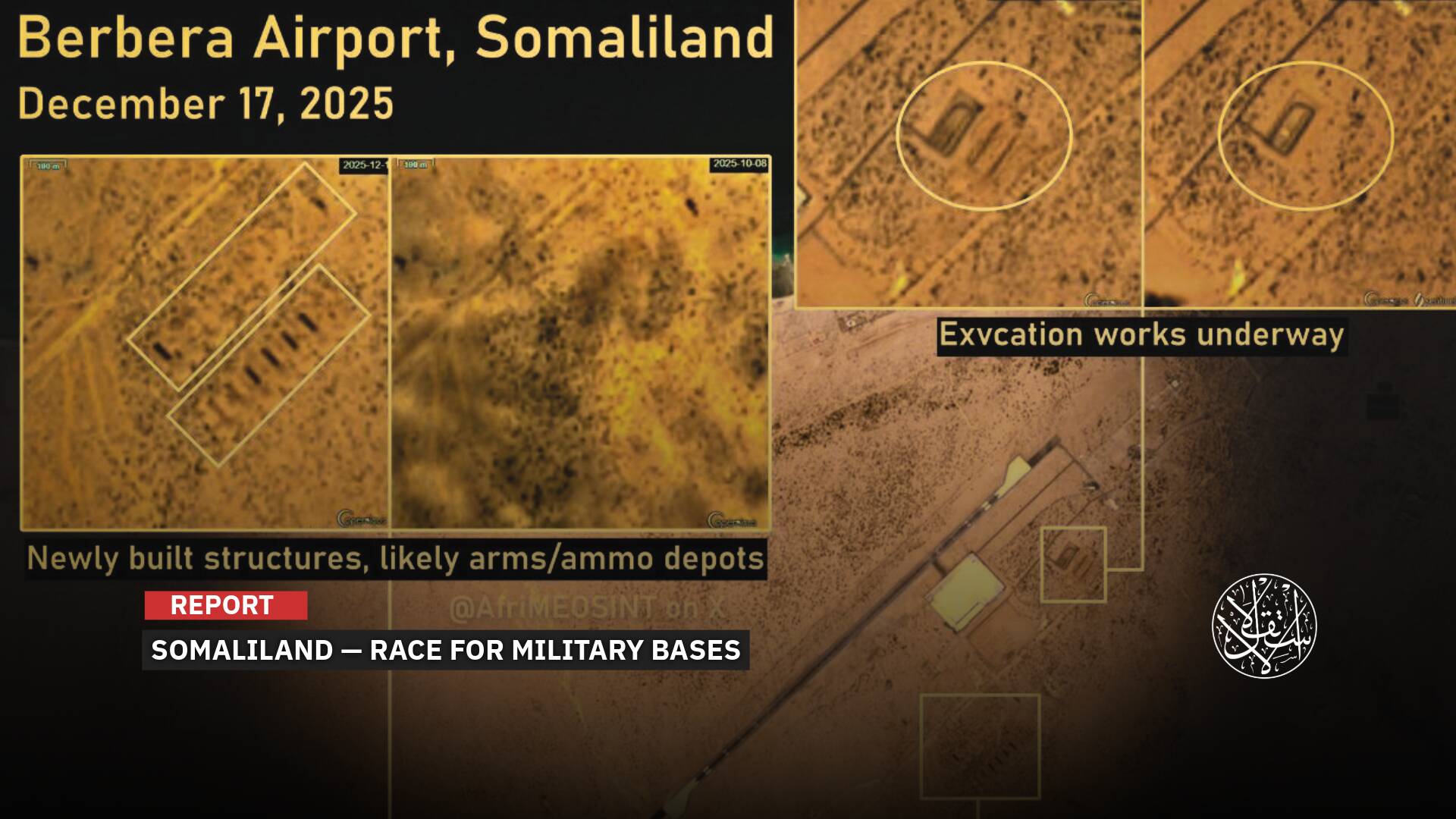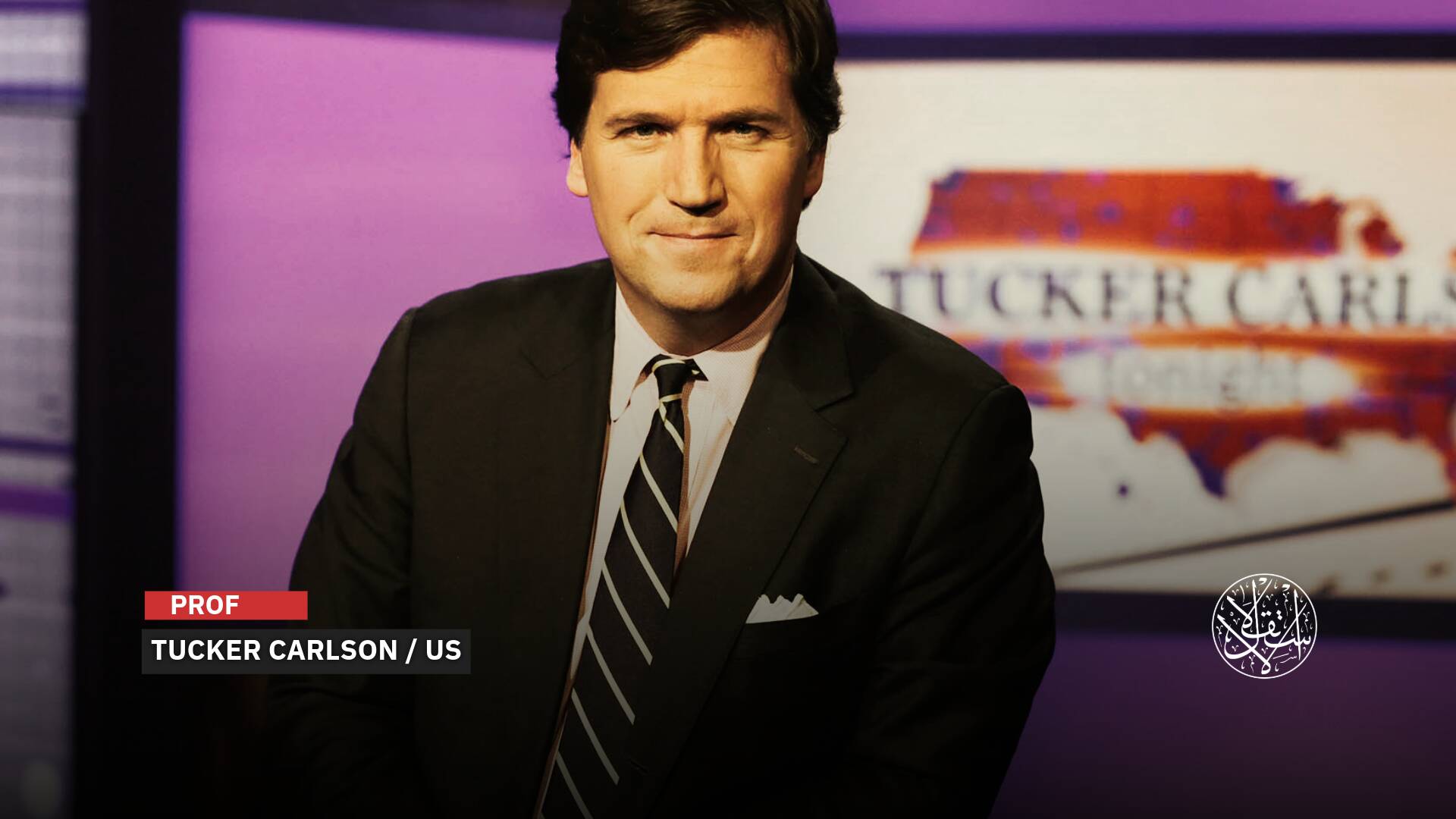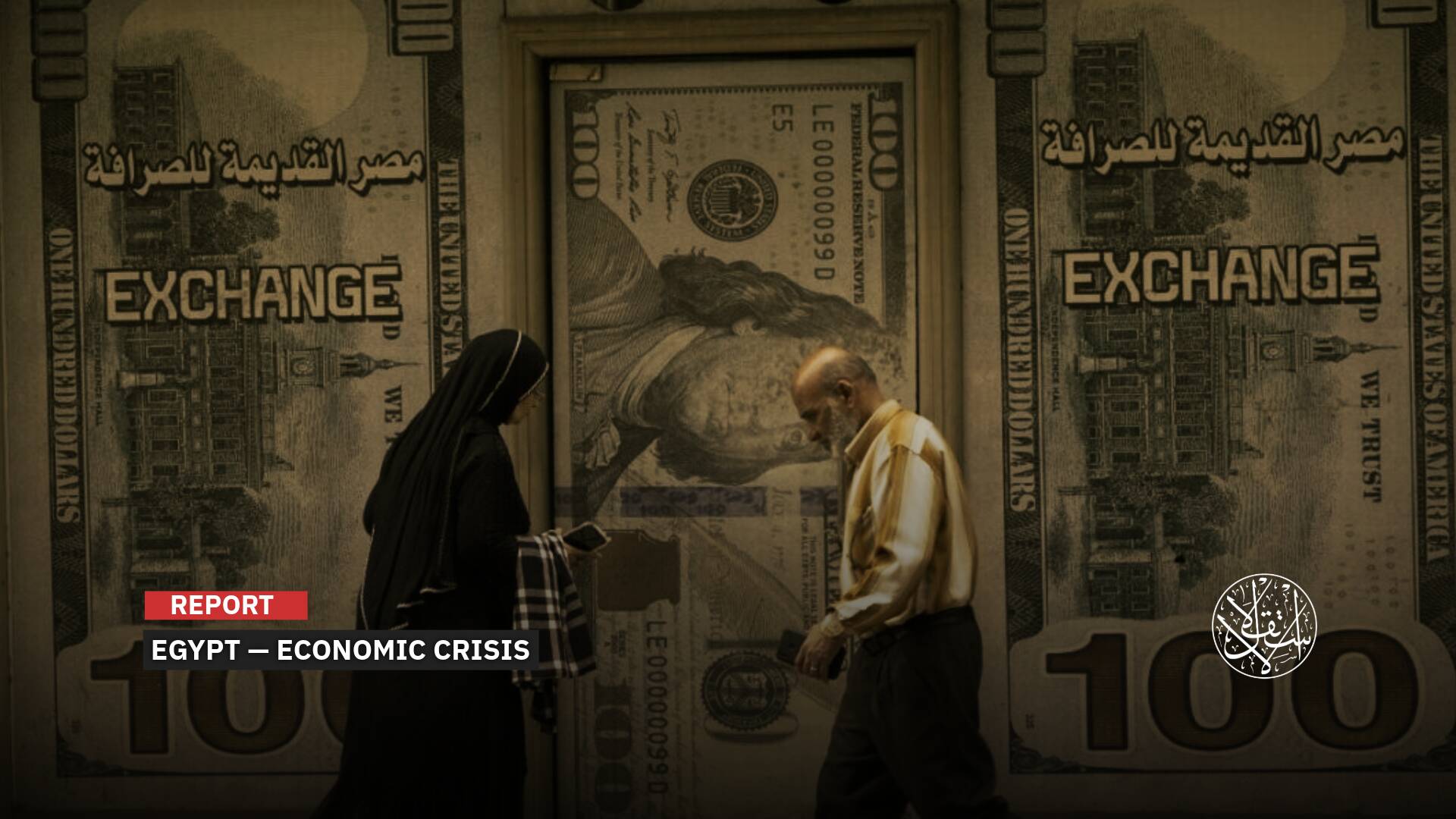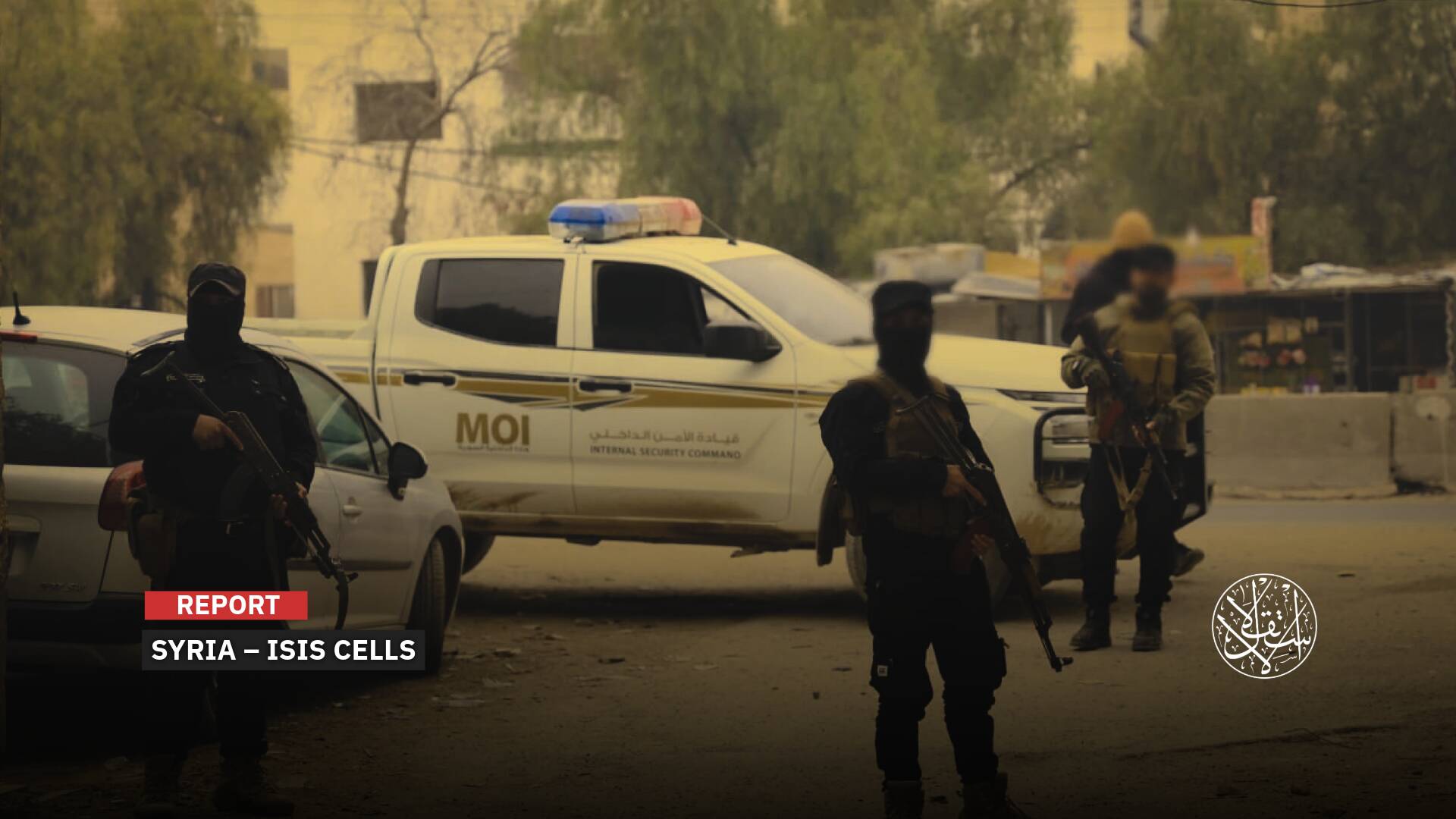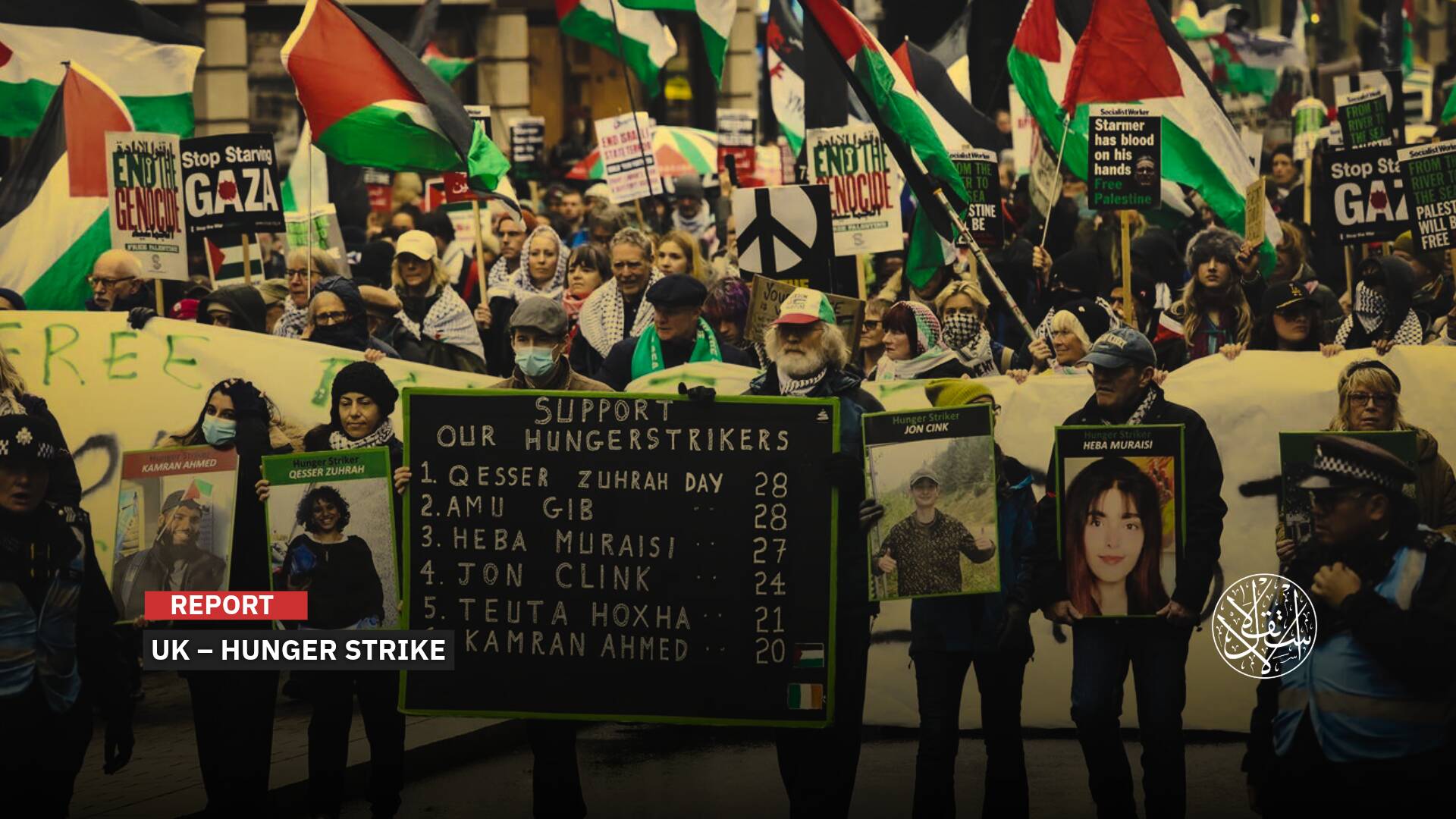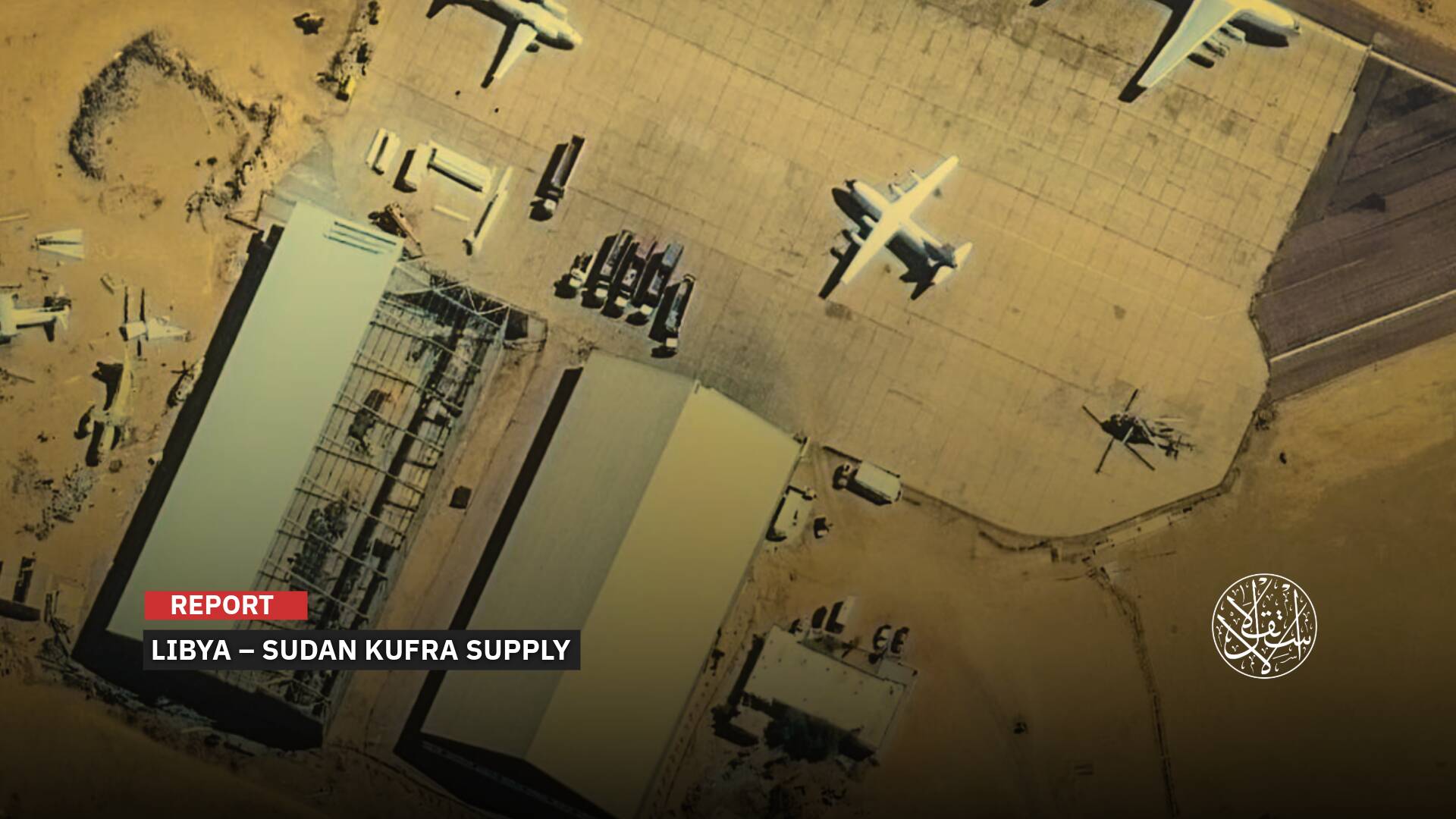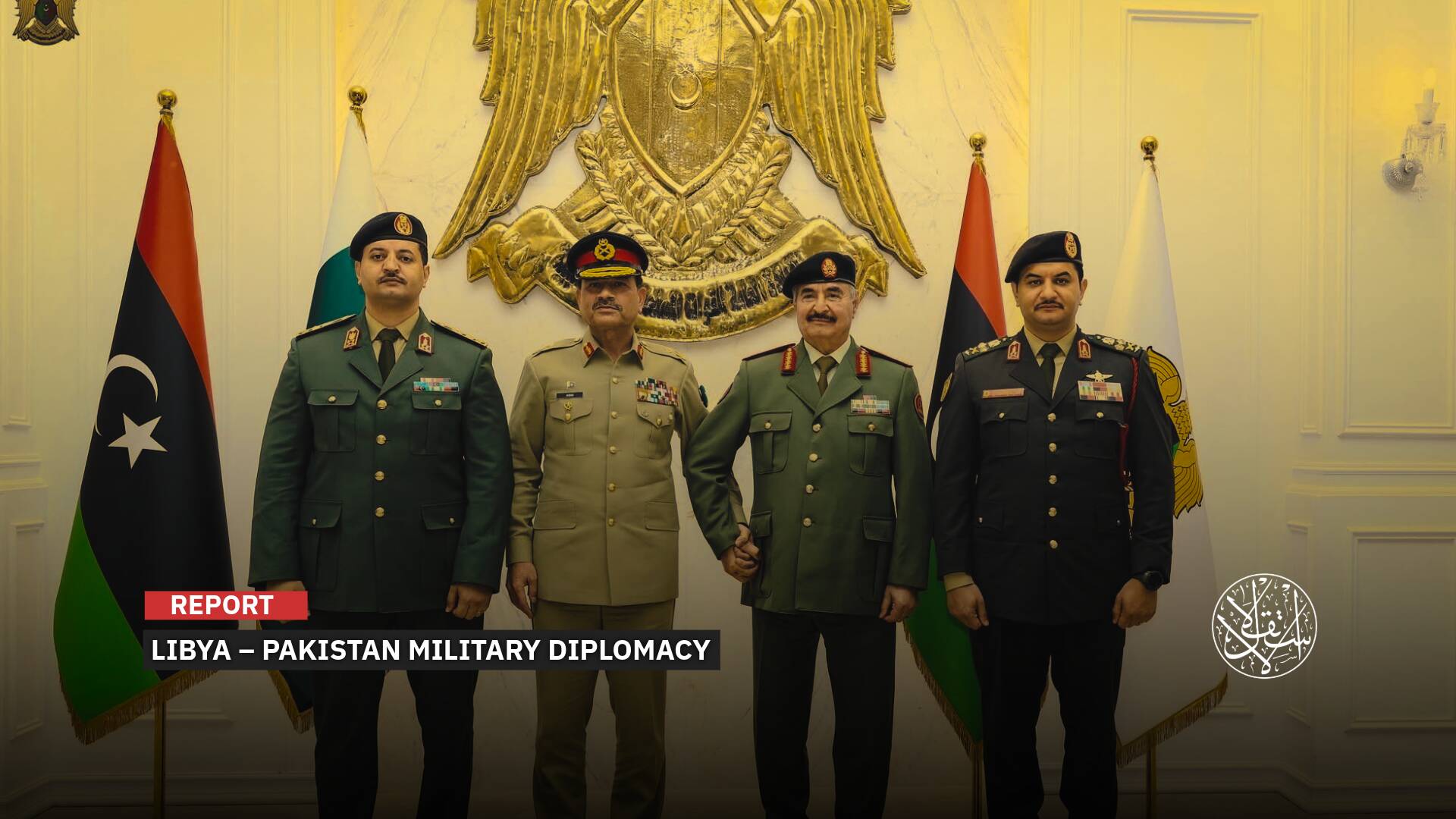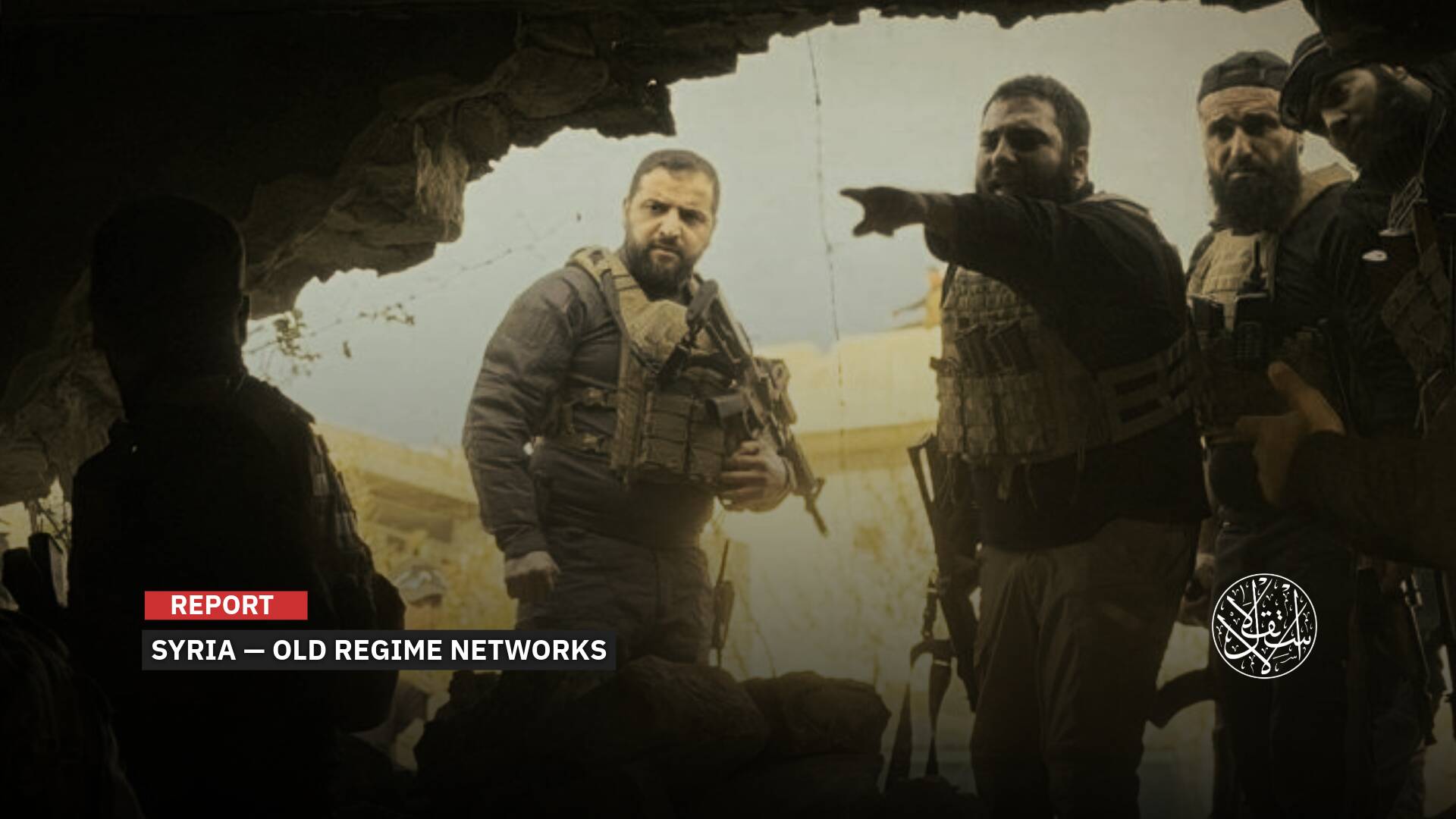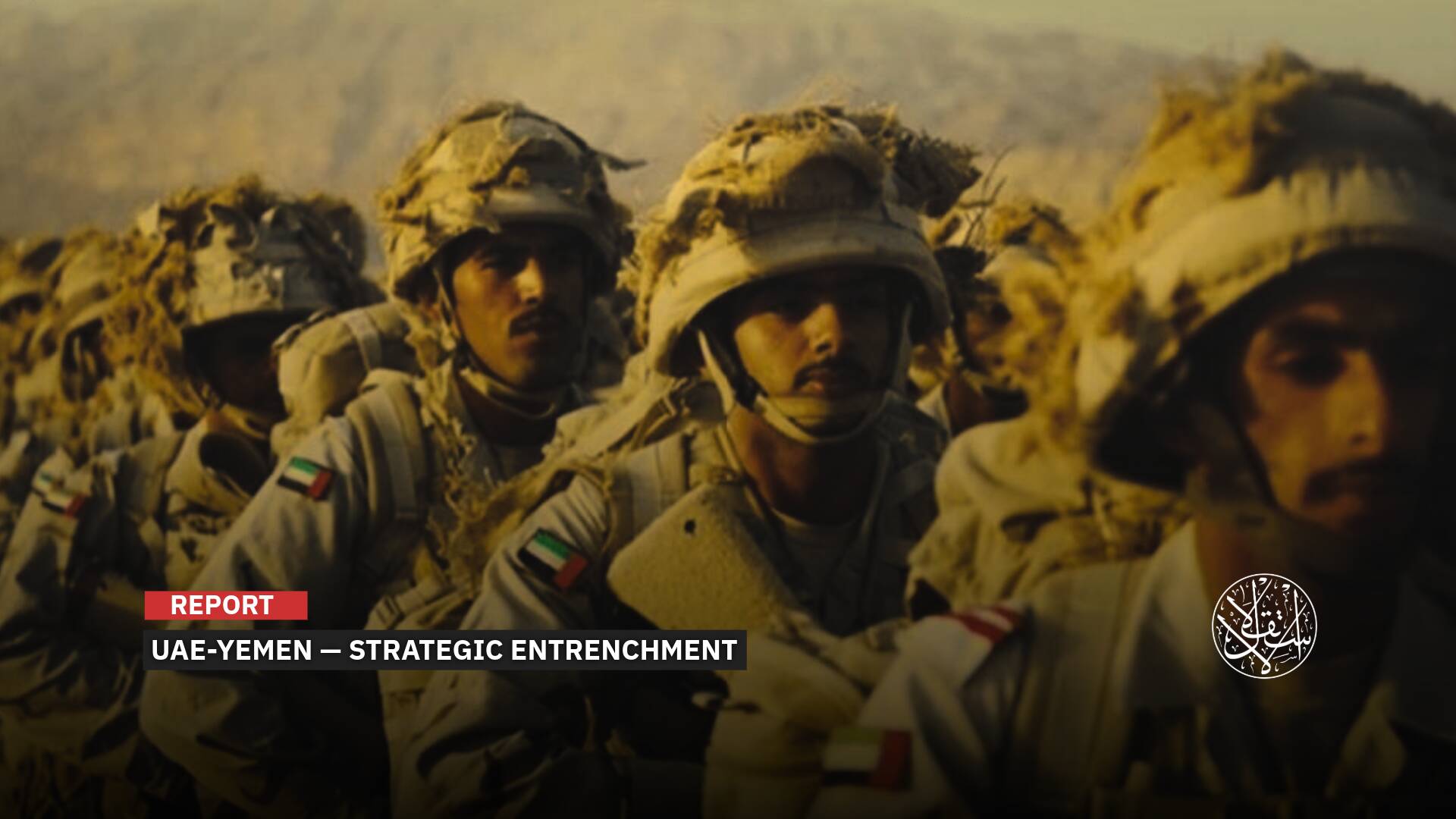Iran-Aligned Iraqi Militias Resume Strikes on U.S. Forces: Messages and Objectives?

Resuming attacks hinders the work of the Iraqi delegation in Washington.
Iran-aligned militias have resumed their military operations against the American presence in Iraq, following recent reports from local media about a deadline these factions gave to the Baghdad government to expel American forces from the country, after halting their attacks in early February 2024.
Since January 30, 2024, the militias had paused their attacks on American forces following the killing of two leaders of the Iraqi Kata'ib Hezbollah by an American drone in Baghdad. This was in retaliation for an attack on a military base in Jordan that killed three American soldiers on January 28.
At that time, Kata'ib Hezbollah - which Washington accuses of being behind attacks in Iraq and Syria - announced it was halting its operations against American forces to avoid embarrassing the Iraqi Prime Minister Mohammad Shia al-Sudani's government, advising its fighters to temporarily engage in passive defense.

Continued Attacks
In a new development, two drones targeted a base hosting American and international forces in western Iraq. An Iraqi military official revealed that "the international coalition's air defense systems shot down one of the drones near the perimeter of Ain al-Asad Airbase."
The official, whose identity was not disclosed, told Reuters on July 16, 2024, that the army has intensified its patrols around the base to prevent other potential attacks.
An unnamed American official also mentioned to the same agency that a projectile appeared to target Ain al-Asad Airbase but caused no casualties.
According to the Reuters report, this is the second attack on American forces in Iraq since early February when militias halted their attacks on American forces. Two drones were shot down near Ain al-Asad Airbase in April 2024.
The Iraqi government had not officially commented on the attack as of July 19.
On June 19, the so-called Iraqi Resistance Coordination Committee (a group of Iran-aligned militias) issued a statement emphasizing the need to continue pursuing Iraqi sovereignty in light of Washington's delays and abstinence in withdrawing military forces.
The committee stated that it held an extraordinary meeting to discuss regional events, particularly those in Iraq, asserting that the American military “occupies our land, violates our airspace, controls our security and economic decisions, and intervenes in Iraqi affairs with utter arrogance and recklessness, as if unaware of what awaits after this opportunity."
The statement concluded by asserting that "the Iraqi people, their resilient resistance, loyal politicians, tribal leaders, and parliament members are determined and capable of closing this file by any means necessary to restore security, stability, and complete sovereignty."
According to a report by Shafaq News Agency on June 6, the militias gave Prime Minister Sudani a 40-day deadline (the start date was not specified) to resolve the issue of expelling American military forces from the country, threatening to resume attacks if the deadline was not met.
The agency quoted Kadhim al-Fartusi, spokesperson for the Kata'ib Sayyid al-Shuhada militia, saying that "the presence of American occupying forces in Iraq is categorically rejected, not temporarily or conditionally."
“The effort to expel these forces through factional operations and other means has its circumstances and specifics."
He noted that “the factions allowed the government, its prime minister, and the Iraqi military and technical negotiation committee to expel the American forces according to a specific agreement and announced timetable.”

Timing of the Attacks
The resumption of attacks on bases in Iraq came less than a week before a high-level Iraqi military delegation, led by Defense Minister Thabet al-Abbasi, was scheduled to visit Washington to continue talks on ending the U.S.-led military coalition in the country.
In January 2024, Washington and Baghdad began discussions to reassess the withdrawal of the U.S.-led coalition, which was established in 2014 to help fight ISIS after the group took over a third of the country.
At that time, the Iraqi Ministry of Foreign Affairs announced successful negotiations with Washington, leading to the formation of a "high military committee" to create a clear and specific timetable for the presence of U.S.-led coalition advisers in Iraq.
On July 8, 2024, Iraqi Deputy Prime Minister and Foreign Minister Fuad Hussein met with U.S. Deputy Assistant Secretary of Defense for the Middle East, Daniel Shapiro, and his delegation, accompanied by U.S. Ambassador to Iraq Alina Romanowski.
During the meeting, Shapiro emphasized the importance of the partnership with Iraq, framed by the joint military committee's work, which involves military leaders from both countries to assess threats, risks, and needs in the security and military domains, as well as to outline future areas of cooperation.
A statement from the Iraqi Ministry of Foreign Affairs noted that the joint committee will hold its meetings in two weeks, with preparations underway to set its agenda, referring to the Iraqi military delegation's visit to Washington on July 20.
The new attacks on American forces followed demands from Badr militia leader Hadi al-Amiri, calling for the withdrawal of foreign forces from Iraq, stating that the international coalition was delaying its exit, and this could not be tolerated.
Al-Amiri mentioned that six months is a sufficient timeline for the withdrawal of the international coalition, rejecting any "delays or evasions" and urging the government and national forces to take a unified stance.
He made these remarks during a memorial speech for Abu Muntadhar al-Muhammadawi, a Badr militia leader, and several of his members killed in battles to reclaim al-Anbar Province from ISIS in 2015.

Anesthesia Injection
Regarding the timing of the resumed operations against American presence, Iraqi affairs researcher Latif al-Mahdawi stated that the recent attacks on military bases are an attempt to thwart any potential U.S.-Iraqi agreement concerning the fate of foreign presence.
Al-Mahdawi explained to Al-Estiklal that whenever the Iraqi government takes a formal step with the United States regarding the status of U.S. forces, the militias activate their attacks. This poses a significant challenge for the Iraqi military delegation facing their U.S. counterparts in Washington to discuss this issue.
He believes there are also internal political dimensions, as the Iran-aligned militias do not want the U.S. withdrawal to be credited to the current Prime Minister Mohammed Shia’ al-Sudani, due to internal disagreements, to prevent it from being seen as an achievement that could lead to a second term for him.
Iraqi international affairs expert Kato Saadallah described the issue of U.S. forces withdrawal, raised by U.S. Ambassador Alina Romanowski during meetings with Shiite coordination framework leaders or the Iraqi government, as merely an "anesthesia injection."
Saadallah elaborated during a TV interview on July 16 that the decision to withdraw U.S. forces lies specifically with Washington, not the Iraqi government or others. He pointed out how, in 2011, the U.S. withdrew 100,000 soldiers when they decided to leave Iraq.
He noted that joint military and technical committees between Baghdad and Washington often conclude that Iraq needs these foreign forces. However, when Iraqi officials return from talks, they face significant pressure from militias.
Saadallah mentioned that the U.S. might propose a two-year withdrawal timeline, but would not withdraw in six months as demanded by some, especially with the U.S. presidential elections just three months away.
He added that even if current U.S. officials promised withdrawal, it would not be binding, as any future president, particularly expected candidate Donald Trump, might not uphold it. Trump's potential presidency would likely prevent the U.S. from withdrawing from Iraq, similar to his 2018 withdrawal from the Iran nuclear deal established by the Obama administration.
Saadallah explained that decisions made by U.S. administrations and presidents are not binding unless ratified by Congress or the Senate. He noted that Washington is aware of the pressures on al-Sudani’s government regarding the U.S. withdrawal, prompting Baghdad to officially request the withdrawal due to these pressures.
A June 8 report by Radio Monte Carlo highlighted that Iraq faces Iranian pressure to complete the U.S. forces' withdrawal, leading militias to give Prime Minister al-Sudani a one-and-a-half to two-month deadline to remove these forces.
The report explained that al-Sudani had informed factions in previous months that Iraqi-American military negotiations would conclude by mid-May, with a timeline for withdrawal established. However, this outcome was not achieved, leading factions to take further steps as no withdrawal timeline was seen.
The report also pointed out that another reason for the militias' ultimatum to al-Sudani is a reported agreement between the Iraqi and U.S. sides to delay the withdrawal issue until after the U.S. presidential elections at the end of 2024.
It seems this information reached the factions, prompting them to give the Iraqi Prime Minister a deadline of no more than two months for the U.S. withdrawal, threatening to resume military attacks against forces in Iraq and Syria if this goal is not achieved.
Sources
- Drones target Iraq's Ain al-Asad airbase, no casualties, say military sources
- Short deadline in Iraq: Why are militias threatening to resume attacks on US forces? [Arabic]
- The Ambassador injects the framework with "withdrawal feeder" [Arabic]
- Live with correspondent: Iranian pressure on Iraq to complete the withdrawal of US forces from the country [Arabic]
- Al-Amiri stresses the necessity of expelling foreign forces: No relations with Türkiye except on this condition [Arabic]
- Deputy Prime Minister and Minister of Foreign Affairs receives US Deputy Assistant Secretary of Defense for Middle Eastern Affairs [Arabic]


